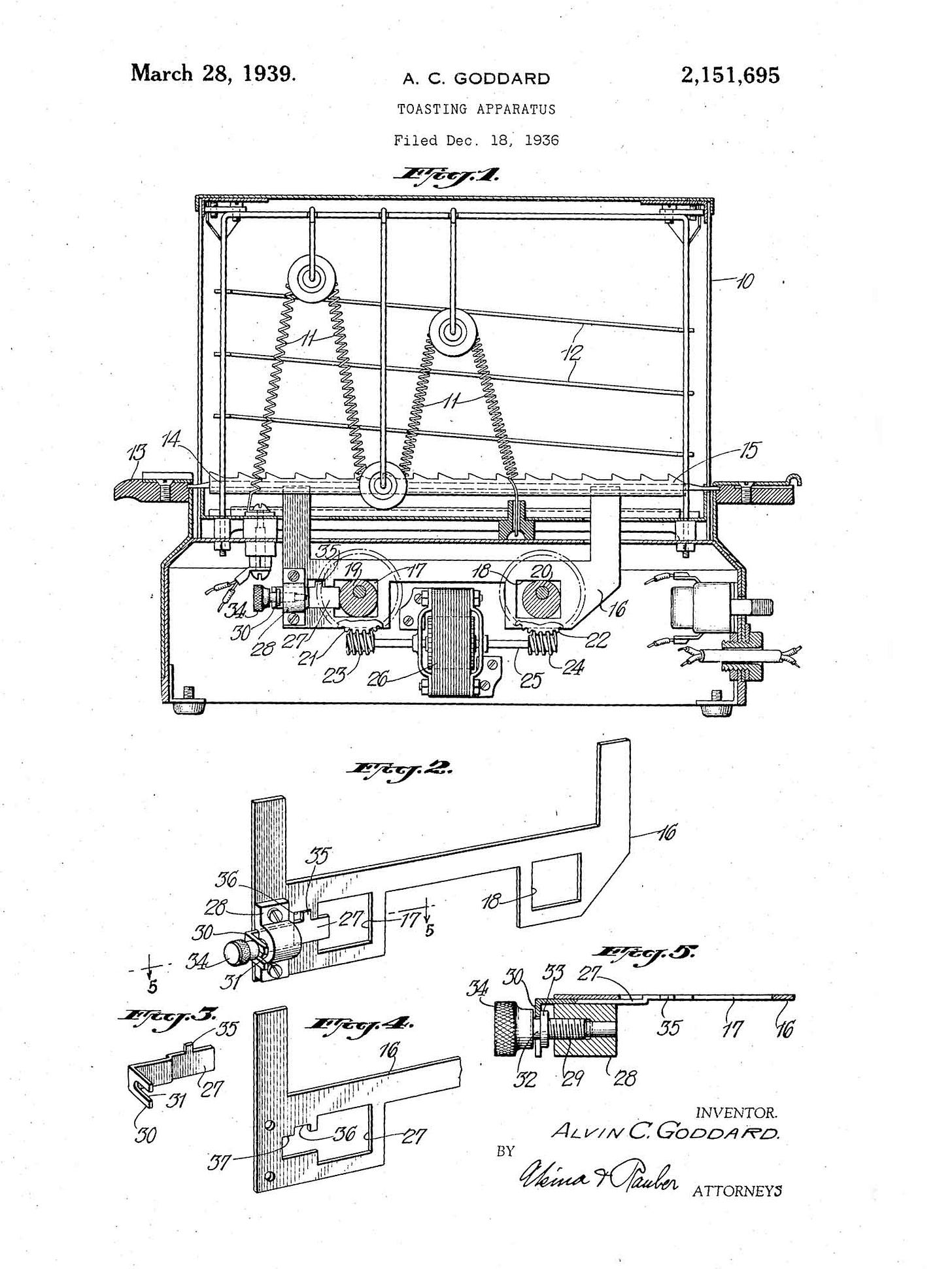Time: Discrete or Continuous?
Toastedness: Discrete or Continuous?
What effect, we might ask ourselves, does the pop-up toaster have on the intellectual development of the child who sits beside it, morning after morning, waiting with his plate and peanut butter? Bread goes in as bread and comes out, after an interval, as toast. Put in bread. Wait. Get out toast. Surely, the child who watches this happen over a period of time comes to think of bread as either bread or toast, to think of time as discrete intervals, and to think of being as being in some one form or in some other, with intervals of waiting, intervals between states when, apparently, nothing happens. …
I was not such a child, because Gumma and Guppa did not have a pop-up toaster. Their toaster was a chrome-plated metal box about as long as three slices of bread lined up side by side. … Little by little, as the bread marched through the toaster, it browned; that is, it became toast. …
I would sit and watch and listen to the toaster and watch the bread through the little window and try to decide where in its passage from left to right it became toast. And from that toaster I learned to think of time as a belt, to think of being as being in transit, … and I developed a sense of time’s passing.Little Follies, “The Static of the Spheres”
Overconfidence, Overreaching; Disappointment
When Guppa and I had begun work on the receiving set, we had, each in his mind’s eye, pictured a similar tableau: grandfather and grandson bent to the work together, youth and age, experience and enthusiasm, harnessed in tandem. We had glowed for a while with the flush of a mutual overconfidence in what an enthusiastic grandson might be able to accomplish, guided by his grandfather’s hand. That glow had faded pretty early in the course of the work, . . .
Little Follies, “The Static of the Spheres”
There is a species of false intelligence, given by those who profess to show the way to the summit of knowledge [such as the staff of Impractical Craftsman magazine (MD)]. … When a scholar, whom they desire to animate, consults them at his entrance on some new study, it is common to make flattering representations of its pleasantness and facility. Thus they generally attain one of two ends almost equally desirable; they either incite his industry by elevating his hopes, or produce a high opinion of their own abilities, since they are supposed to relate only what they have found, and to have proceeded with no less ease than they promise to their followers.
The student, inflamed by this encouragement, sets forward in the new path, and proceeds a few steps with great alacrity, but he soon finds asperities and intricacies of which he has not been forewarned, and imagining that none ever were so entangled or fatigued before him, sinks suddenly into despair, and desists as from an expedition in which fate opposes him. Thus his terrors are mutliplied by his hopes, and he is defeated without resistance, because he had no expectation of an enemy.Samuel Johnson, The Rambler, Number 25
[more to come on Monday, September 13, 2021]
Have you missed an episode or two or several?
You can catch up by visiting the archive or consulting the index to the Topical Guide.
You can listen to the episodes on the Personal History podcast. Begin at the beginning or scroll through the episodes to find what you’ve missed.
At Apple Books you can download free eBooks of “My Mother Takes a Tumble,” “Do Clams Bite?” and “Life on the Bolotomy,” the first three novellas in Little Follies.
You’ll find an overview of the entire work in An Introduction to The Personal History, Adventures, Experiences & Observations of Peter Leroy. It’s a pdf document.




